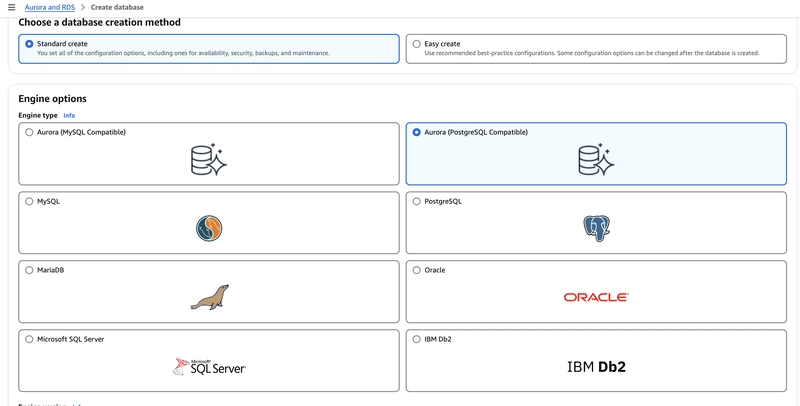Azure Storage Solutions
Azure Storage Solutions: A Comprehensive Overview Introduction: Azure Storage offers a suite of cloud services for storing unstructured data, including text or binary data, images, videos, and more. It's highly scalable, durable, and cost-effective, making it a popular choice for various applications. This article provides a brief overview of Azure Storage solutions. Prerequisites: Before using Azure Storage, you'll need an active Azure subscription. You'll also need appropriate permissions and familiarity with the Azure portal or command-line interface (CLI). Knowledge of basic cloud concepts is beneficial. Features: Azure Storage comprises several services: Blobs: Stores unstructured data like text, images, and multimedia. Blobs can be accessed via REST APIs or the Azure Storage SDKs (e.g., Python, .NET, Java). # Example using the Azure Blob Storage SDK (Python) from azure.storage.blob import BlobServiceClient # ... (connection string and container setup) ... blob_client = blob_service_client.get_blob_client(container="mycontainer", blob="myblob.txt") blob_client.upload_blob(data="Hello, Azure!") Files: Offers SMB file shares accessible via standard network protocols. This is ideal for applications requiring file-sharing capabilities. Queues: Provides message queuing for asynchronous communication between application components. Tables: Stores structured NoSQL data in tables with rows and columns. Suitable for storing semi-structured data requiring fast lookups. Advantages: Scalability and Durability: Easily scale storage capacity based on needs and benefit from redundancy for data protection. Cost-effectiveness: Pay-as-you-go pricing model ensures you only pay for what you use. Security: Robust security features including encryption at rest and in transit. Global Reach: Access your data from anywhere in the world with low latency. Disadvantages: Vendor lock-in: Migrating away from Azure Storage can be complex. Complexity: Managing a large storage account can be challenging, requiring expertise. Network Dependency: Requires a stable internet connection. Conclusion: Azure Storage is a powerful and versatile solution for various data storage needs. Its scalability, durability, and cost-effectiveness make it a strong contender for many applications. However, potential users should be mindful of the associated complexities and vendor lock-in before making a decision. Choosing the appropriate storage service (Blob, File, Queue, or Table) based on your application's requirements is crucial for optimal performance and cost efficiency.

Azure Storage Solutions: A Comprehensive Overview
Introduction:
Azure Storage offers a suite of cloud services for storing unstructured data, including text or binary data, images, videos, and more. It's highly scalable, durable, and cost-effective, making it a popular choice for various applications. This article provides a brief overview of Azure Storage solutions.
Prerequisites:
Before using Azure Storage, you'll need an active Azure subscription. You'll also need appropriate permissions and familiarity with the Azure portal or command-line interface (CLI). Knowledge of basic cloud concepts is beneficial.
Features:
Azure Storage comprises several services:
- Blobs: Stores unstructured data like text, images, and multimedia. Blobs can be accessed via REST APIs or the Azure Storage SDKs (e.g., Python, .NET, Java).
# Example using the Azure Blob Storage SDK (Python)
from azure.storage.blob import BlobServiceClient
# ... (connection string and container setup) ...
blob_client = blob_service_client.get_blob_client(container="mycontainer", blob="myblob.txt")
blob_client.upload_blob(data="Hello, Azure!")
Files: Offers SMB file shares accessible via standard network protocols. This is ideal for applications requiring file-sharing capabilities.
Queues: Provides message queuing for asynchronous communication between application components.
Tables: Stores structured NoSQL data in tables with rows and columns. Suitable for storing semi-structured data requiring fast lookups.
Advantages:
- Scalability and Durability: Easily scale storage capacity based on needs and benefit from redundancy for data protection.
- Cost-effectiveness: Pay-as-you-go pricing model ensures you only pay for what you use.
- Security: Robust security features including encryption at rest and in transit.
- Global Reach: Access your data from anywhere in the world with low latency.
Disadvantages:
- Vendor lock-in: Migrating away from Azure Storage can be complex.
- Complexity: Managing a large storage account can be challenging, requiring expertise.
- Network Dependency: Requires a stable internet connection.
Conclusion:
Azure Storage is a powerful and versatile solution for various data storage needs. Its scalability, durability, and cost-effectiveness make it a strong contender for many applications. However, potential users should be mindful of the associated complexities and vendor lock-in before making a decision. Choosing the appropriate storage service (Blob, File, Queue, or Table) based on your application's requirements is crucial for optimal performance and cost efficiency.









































































































































































![[The AI Show Episode 142]: ChatGPT’s New Image Generator, Studio Ghibli Craze and Backlash, Gemini 2.5, OpenAI Academy, 4o Updates, Vibe Marketing & xAI Acquires X](https://www.marketingaiinstitute.com/hubfs/ep%20142%20cover.png)



























































































































![[FREE EBOOKS] The Kubernetes Bible, The Ultimate Linux Shell Scripting Guide & Four More Best Selling Titles](https://www.javacodegeeks.com/wp-content/uploads/2012/12/jcg-logo.jpg)



![From drop-out to software architect with Jason Lengstorf [Podcast #167]](https://cdn.hashnode.com/res/hashnode/image/upload/v1743796461357/f3d19cd7-e6f5-4d7c-8bfc-eb974bc8da68.png?#)






































































































.png?#)




.jpg?#)
































_Christophe_Coat_Alamy.jpg?#)








































































































![Rapidus in Talks With Apple as It Accelerates Toward 2nm Chip Production [Report]](https://www.iclarified.com/images/news/96937/96937/96937-640.jpg)








































































































































